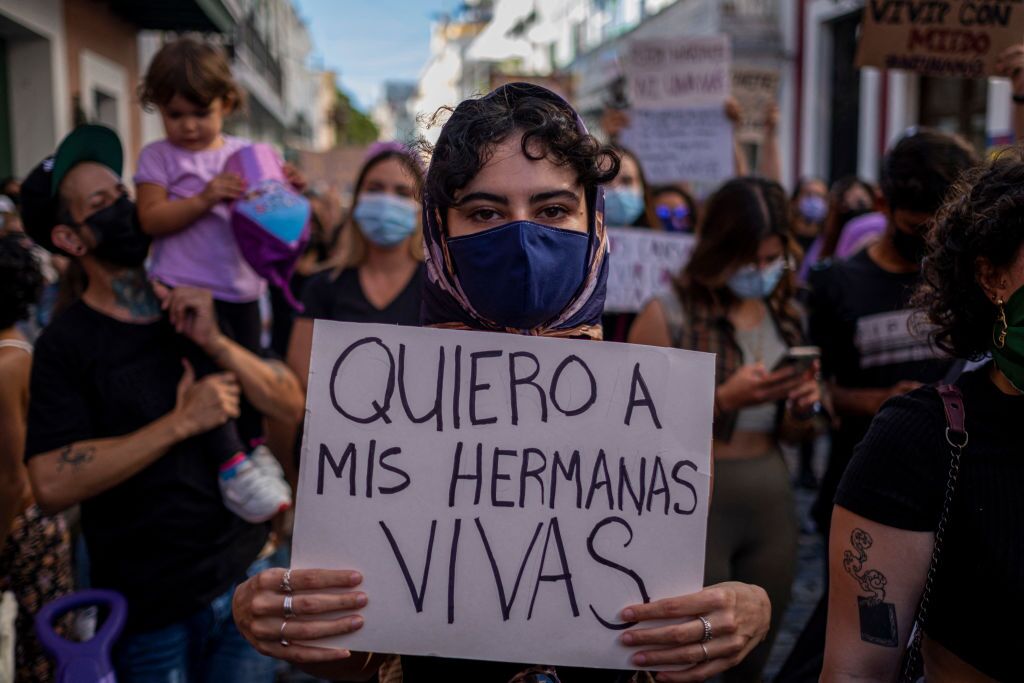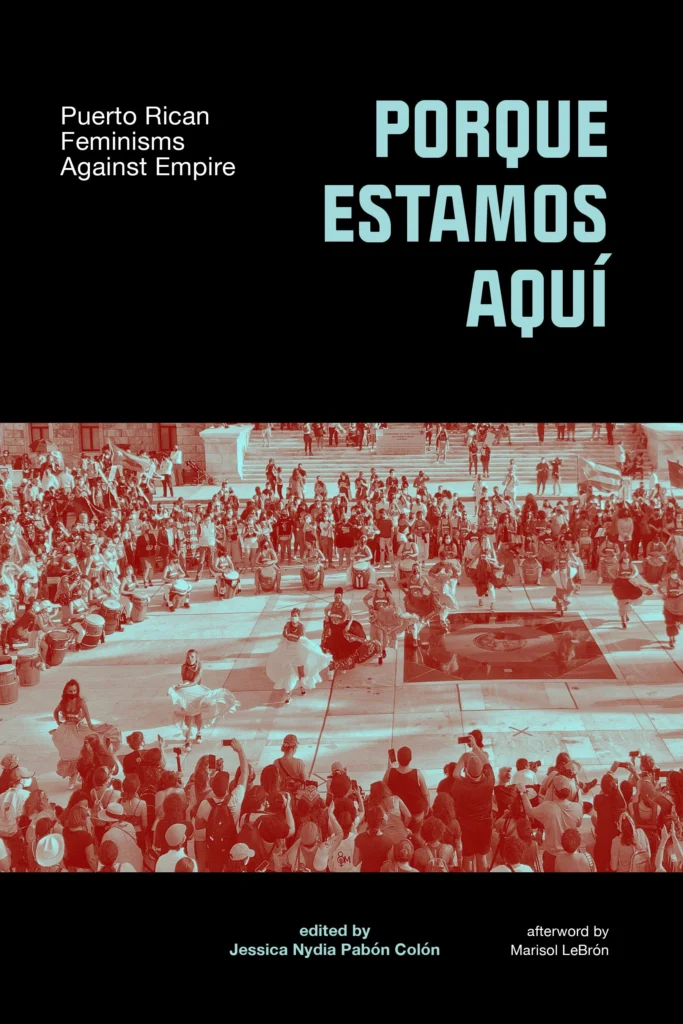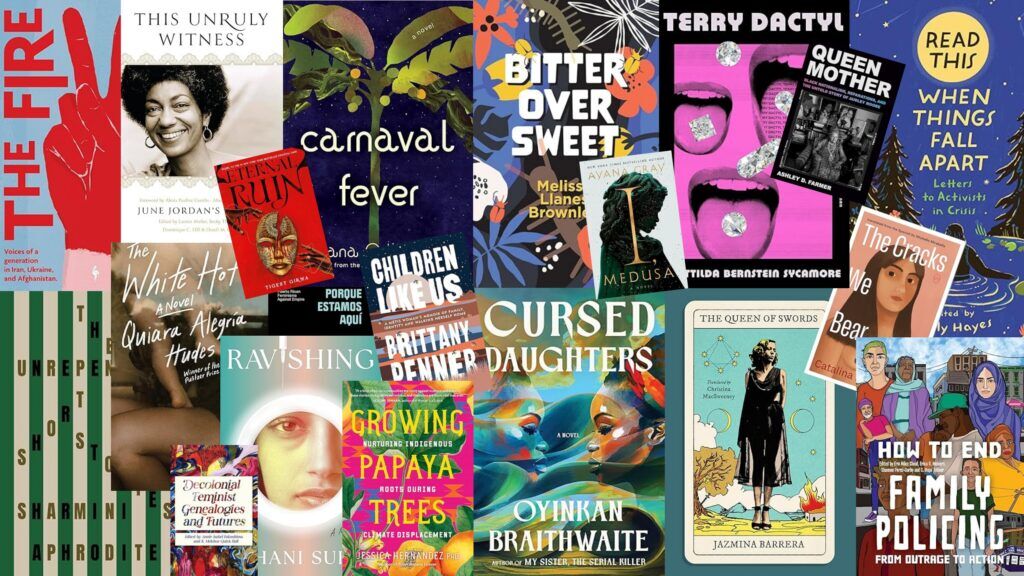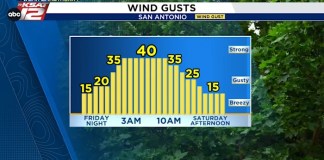The Feminist Know-It-All: You know her. You can’t stand her. Good thing she’s not here! Instead, this column by gender and women’s studies librarian Karla Strand will amplify stories of the creation, access, use and preservation of knowledge by women and girls around the world; share innovative projects and initiatives that focus on information, literacies, libraries and more; and, of course, talk about all of the books.
Hello, feminist reader friends! Each month, I provide Ms. readers with a list of new books being published by writers from historically excluded groups. The aims of these lists are threefold:
- I want to do my part in the disruption of what has been the acceptable “norm” in the book world for far too long—white, cis, heterosexual, male;
- I want to amplify indie publishers and amazing works by writers who are women, Black, Indigenous, Latinx, APIA/AAPI, international, queer, trans, nonbinary, disabled, fat, immigrant, Muslim, neurodivergent, sex-positive or of other historically marginalized identities—you know, the rest of us; and
- I want to challenge and encourage you all to buy, borrow and read them!
Some of you may know that November is the month in which the National Women’s Studies Association (NWSA) annual conference is held. It is the event of the year for many of us in gender, women’s and sexuality studies, and a time to gather with friends and colleagues, compare notes, regroup, rest, reveal and rejuvenate.
Each year, the conference is held in a different city—and this year we return to San Juan, Puerto Rico, after our last visit there in 2014. With news of Bad Bunny’s anticipated Super Bowl debut, Puerto Rico is once again in the spotlight.
Much has changed since the last time NWSA was held in Puerto Rico. Most notably, two devastating back-to-back hurricanes, Irma and Maria, hit the island in September 2017, causing monumental damage from which the people are still recovering. Complicating matters further, two major earthquakes struck the island in January 2020, and additional hurricanes went through in 2022 and earlier this year. Economic crises, poverty, climate change and its territorial status all threaten Puerto Rico and the survival of its people.

Puerto Rico’s original name is Borikén, a name given by the Táino people, who are the Arawak Indigenous peoples of the Caribbean.
While I’ve neither the space nor the expertise to provide a comprehensive history of Puerto Rico here, I can safely say that colonialism is a root cause of the continued challenges it faces. Scholars, journalists and Boricua feminists alike have explained the lasting impacts of imperialism, white supremacy and patriarchy. They’ve provided practical examinations of disaster capitalism and valuable resources, such as the Puerto Rico Syllabus, that focus on grassroots, collective resistance and solutions to ongoing issues.
I’m thrilled to be returning to Puerto Rico this month and wanted to do it in the most responsible and humble way possible. I’m grateful for the individuals and groups working to effect change there and bringing this information to us all so that we, too, can learn, understand and act.

In honor of this month’s feminist migration to Borikén, I’m calling special attention to one book on this month’s list: Porque Estamos Aquí: Puerto Rican Feminisms Against Empire, a groundbreaking collection edited by the phenomenal Jessica Nydia Pabón-Colón. She created the jerseys for the 2017 NWSA conference in response to feminists’ vocal support of Women’s Marches, yet relative silence on the disasters in Puerto Rico. Her edited anthology is a much-needed collection of essays focused on Boricua and DiaspoRican feminist histories, pedagogies, goals, efforts and actions. It helped me learn more about this beautiful place, its struggles and its peoples.
(Full disclosure, I first met Jessica at an NWSA conference some years ago, and I will be bringing the “Feminists for Puerto Rico” shirt I bought from her with me this year.)
Whether you are attending NWSA or not, I hope you have a thoughtful, restful and meaningful November. While many will gather with friends and family, we will also continue supporting the fight for self-governance and sovereignty for Puerto Rican and other Indigenous peoples, providing food and financial assistance to those affected by the loss of federal benefits and taking action to improve people’s lives in our (and all) corners of the world.
I hope you find something on this list of 20 that you can include in your plans.

By Sharmini Aphrodite. Gaudy Boy, LLC. Out Nov. 1.
In this debut collection, Sharmini Aphrodite writes stories of a history that many of us in the West may be unfamiliar with: the Malayan resistance to colonial violence and repression of leftist independence movements. Including themes of love, memory, perspective and sacrifice, this collection is as beautiful as it is captivating.
*
By Melissa Llanes Brownlee. Santa Fe Writers’ Project. Out Nov. 4.
A winner of the Santa Fe Writers Project Literary Award, this is an engrossing collection of stories by an Indigenous Hawai’ian woman about Indigenous Hawai’ian women. Centering resilient Tita, these short narratives are incandescent and alive with grief, poverty, pain, love, complexity and harmony.
*
By Brittany Penner (Métis). Regalo Press. Out Nov. 4.
As a Métis girl adopted by a white Mennonite family in Canada, Brittany Penner never felt like she truly fit in. Her questions increased as she got older, and Indigenous foster children came and went from the family. With themes of colonialism, intergenerational trauma and healing, Penner’s memoir is candid and caring, heartwrenching and hopeful.
*
Written by Catalina Infante. Translated by Michelle Mirabella. World Editions. Out Nov. 4.
In her moving English language debut, Chilean writer Catalina Infante deftly explores the hopes and heartaches of new motherhood. Composed of short vignettes, this uniquely envisioned narrative pieces together the struggles that political exile, mental illness and familial loss have on Laura, whose restless newborn brings back haunting memories.
*
By Oyinkan Braithwaite. Doubleday. Out Nov. 4.
Born on the same day as her aunt’s funeral, Eniiyi must escape her family’s belief that she is her aunt’s reincarnation, along with their generational curse. Full of superstition and satire, Cursed Daughters is a captivating meditation on familial obligation and breaking free from inherited trauma.
*
By Tigest Girma. Little, Brown Books for Young Readers. Out Nov. 4.
Here we have the sequel to the thrilling dark academia vampire romantasy of our dreams. And once again, the stunning deluxe limited edition sets the stage for the devastating twists and intense surprises. Tigest Girma delivers another emotional rollercoaster in the best (and worst) ways.
*
Edited by Erin Miles Cloud, Erica R. Meiners, Shannon Perez-Darby and C. Hope Tolliver. Haymarket Books. Out Nov. 4.
This timely anthology is focused on family policing services (FPS) and the violence they cause under the myth of “protecting” children. Hard-hitting contributors such as Dorothy Roberts, Margaret Prescod, Shira Hassan, jasmine Sankofa, and more explain the problems with the current system and the ways we can move from outrage to taking action to replace it with one that actually keeps children, families and communities safe.
*
By Ashley D. Farmer. Pantheon. Out Nov. 4.
“Queen Mother” Audley Moore led a remarkable life as one of the country’s foremost Black nationalists and reparations activists, yet most of us have probably never heard of her. Through meticulous research and compelling narrative, Ashley Farmer lovingly explores Moore’s life and lasting legacy.
*
Edited by Kelly Hayes. AK Press. Out Nov. 4.
In their latest, Kelly Hayes and 19 other organizers contribute letters to those of us struggling to stay afloat in our own activism, relationships and daily lives. Not a guide, this volume is a salve for the wounds we incur when doing the work, and its contents are the love and encouragement we need to continue tending the fires of resistance.
*
Written by Yuliana Ortiz Ruano. Translated by Madeleine Arenivar. Soft Skull. Out Nov. 11.
This evocative and captivating novel centers on Ainhoa, a young Afro-Ecuadorian girl growing up in the 1990s. Ainhoa tells her story of contending with hardship, poverty, family secrets and male violence while surrounded by dance, music and aunties who protect and support her.
*
By Jessica Hernandez (Binnizá/Zapotec & Maya Ch’orti’). North Atlantic Books. Out Nov. 11.
In her sophomore book, Indigenous scientist and community advocate Jessica Hernandez offers an accessible explanation of climate displacement from a Global South perspective. From colonialism to land rights to renewable energy, Hernandez explores how Indigenous ways of knowing can help us fight for climate justice now and for generations to come.
*
Edited by Jessica Nydia Pabón-Colón. The Feminist Press at CUNY. Out Nov. 11.
This triumphant collection examines Puerto Rican feminisms, histories, collectivity and action as necessary antidotes to imperialist white supremacist capitalist patriarchy. Serving as a serious call to action, this volume includes essays, manifestas, poems and reflections by Jessica Nydia Pabón-Colón, Aurora Santiago Ortiz, Iris Morales, Aurora Levins Morales and more.
*
Written by Jazmina Barrera. Translated by Christina MacSweeney. Two Lines Press. Out Nov. 11.
When Jazmina Barrera was asked to write a biographical essay on Mexican writer Elena Garro (1916-1988), she had no idea what she was in for. After beginning her research, Barrera became obsessed with unraveling the multiple threads of Garro’s layered life. The result is (thankfully) this unique and captivating portrait of Garro and Barrera’s fascination with her.
*
By Eshani Surya. Roxane Gay Books. Out Nov. 11.
A powerful reflection on wellness culture, this debut novel follows two Indian American siblings as they navigate the rise of a new cosmetic product that alters consumers’ facial features. With tender storytelling, Eshani Surya navigates the intersection of chronic illness, race, and the unattainability of beauty standards.
*
By Mattilda Bernstein Sycamore. Coffee House Press. Out Nov. 11.
In her signature style and kaleidoscopic prose, Mattilda Bernstein Sycamore’s latest novel features club kid Terry, the trans daughter of a lesbian couple who grew up surrounded by queens and queers in the midst of the AIDS crisis. With themes of art, love, loss, friendship, identity and connection, this is a fierce fever dream of a book.
*
Edited by Lauren Muller, Becky Thompson, Dominique C. Hill and Durell M. Callier. Haymarket Books. Out Nov. 11.
In her preface, Alexis Pauline Gumbs calls this book “a reunion.” I call it a gift, just as poet activist June Jordan herself was. The poems, letters, interviews and essays in this collection celebrate Jordan, her work, her wisdom and her love. Joining Gumbs as contributors are Margo Okazawa-Rey, Maria Poblet, Imani Perry, Naomi Shihab Nye, Shanti Bright Brien (Muscogee), Angela Davis and more.
*
By Quiara Alegría Hudes. One World. Out Nov. 11.
I just finished reading the latest novel by Pulitzer Prize winner Quiara Alegría Hudes in one sitting. To say I am moved, astonished and gutted would be an understatement. This is a stunning, heart-wrenching and unforgettable story of motherhood, intergenerational trauma and forgiveness like no other.
*
Written by Cecilia Sala. Translated by Oonagh Stransky. Europa Editions. Out Nov. 18.
In steady, unblinking prose, Cecilia Sala paints a sweeping portrait of young activists fighting for freedom around the world. Drawing on interviews, historical analysis and firsthand accounts, The Fire is the perfect book for anyone seeking inspiration and guidance from those at the front lines of global conflict.
*
By Ayana Gray. Random House. Out Nov. 18.
This is a captivating reimagining of one of mythology’s most well-known villains that is both heartbreakingly tragic and overwhelmingly empowering. This novel reclaims Medusa’s story and highlights the woman behind the snakes, considering her not as a monster, but a sister, acolyte, and heroine.
*
Edited by Annie Isabel Fukushima and K. Melchor Quick Hall. University of Illinois Press. Out Nov. 25.
Examining radical resistance to racism and settler colonialism, the contributors to this interdisciplinary anthology include Rachel Afi Quinn, Tricia McGuire-Adams (Anishinaabe), Eun-Jin Keish Kim, Azza Basarudin and more. This is a significant collection that both excavates the past and envisions a more equitable future.
*
Also releasing this month:
And the Dragons Do Come: Raising a Transgender Kid in Rural America
By Sim Butler. The New Press. Out Nov. 4.
Coldwire
By Chloe Gong. Margaret K. McElderry Books. Out Nov. 4.
Mother Tongues of the High Andes: Gender, Language, and Indigenous Difference in Peru
By Sandhya Krittika Narayanan. University of Arizona Press. Out Nov. 4.
Solidarity with Children: An Essay Against Adult Supremacy
By Madeline Lane-McKinley. Haymarket Books. Out Nov. 4.
The Undesirable Many: Black Women and Their Struggles against Displacement and Housing Insecurity in the Nation’s Capital
By Rosemary Ndubuizu. University of North Carolina Press. Out Nov. 4.
Wine Pairing for the People: The Communion of Wine, Food, and Culture from Africa and Beyond
By Cha McCoy. Harvest. Out Nov. 4.
The Writing Room
By Marcia Argueta Mickelson. Carolrhoda Lab. Out Nov. 4.
The Year of the Wind: A Novel
By Karina Pacheco Medrano. Graywolf Press. Out Nov. 4.
By Their Work: Indigenous Women’s Digital Media in North America
Edited by Joanna Hearne and Karrmen Crey (Sto:lo and a member of the Cheam Band). University of Minnesota Press. Out Nov. 11.
Black, White, Colored: The Hidden Story of an Insurrection, a Family, a Southern Town, and Identity in America
By Lauretta Malloy Noble and LeeAnet Noble. Amistad. Out Nov. 18.
Fairy Tale Retellings, Volume I
By Scarlett St. Clair (Muscogee). Bloom Books. Out Nov. 18.
Place-Keepers: Latina/x Art, Performance, and Organizing in the Twin Cities
By Jessica Lopez Lyman. University of Minnesota Press. Out Nov. 18.
A Love Story from the End of the World: Stories
By Juhea Kim. Ecco. Out Nov. 25.
Technologies of Kinship: Asian American Racialization and the Making of Family
By LiLi Johnson. NYU Press. Out Nov. 25.
Great Job Karla J. Strand & the Team @ Ms. Magazine Source link for sharing this story.





